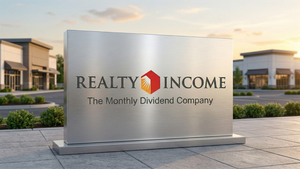Key findings:
- Two-thirds of Americans believe investing success today requires supplementing traditional investment products like stocks and bonds with new asset types, and two in five say the 60/40 portfolio is outdated.
- More than 60% of Americans say today’s market environment demands a long-term view, and nearly 70% of investors say they have more patience now than when they started.
- Two in five Americans see cryptocurrency as a good investment, and 65% of cryptocurrency investors plan to increase their holdings. Nearly half of American investors are interested in owning alternatives like private equity, hedge funds, and venture capital.
Americans are rethinking what successful investing requires today and believe they need to supplement traditional asset types with new opportunities to further diversify and tailor their portfolios, according to findings from Charles Schwab’s 2025 Modern Wealth Survey. The annual survey examines Americans’ perspectives on saving, spending, investing, and wealth.
Schwab findings show that while stocks (64%), mutual funds (41%), and bonds (37%) remain core holdings, two-thirds of Americans (67%) believe they must look beyond those traditional investment products for greater diversification and investing success today, and 42% believe the classic 60/40 portfolio is outdated.
About half (52%) also say investing today requires more short-term risk-taking than in the past. In fact, trading is playing a bigger role in how Americans are approaching investing. For 43% of investors, trading activity has increased since they first started because they have better access to platforms and tools (51%), they are looking to take advantage of market opportunities (51%), and they have more experience and confidence in trading (48%). Nine in 10 (89%) investors make trades at least annually, and nearly half (46%) trade monthly or quarterly. Only three in 10 (30%) say they trade less often than when they began.
At the same time, Americans are demonstrating more patience than ever. Six in 10 (63%) say today’s market environment demands greater long-term discipline, and nearly seven in 10 (68%) investors say they have more patience to let their investments grow compared to when they first started.
Younger generations, who are often thought to favor quick wins, are also showing this discipline. Six in 10 Gen Z investors (62%) say they are more patient now than when they began, and Millennial investors lead the way at 72%.
“Even in a world that can feel driven by instant gratification, it’s encouraging to see so many investors recognize the importance of taking a long-term perspective and steadily building wealth,” said Jonathan Craig, Head of Retail Investing at Charles Schwab.
“At the same time, having a long-term perspective doesn’t have to mean just buying and holding investments. According to our survey—and based on what we see with our own clients—investors are more engaged than ever, actively trading and exploring new strategies in pursuit of their broader financial goals. New asset types are adding to this momentum by drawing a new generation of investors and creating more ways to diversify, a principle that has always been central to long-term investing success.”
Americans agree that… |
All Americans |
Gen Z |
Millennials |
Gen X |
Boomers |
Successful investing today requires looking beyond stocks and bonds |
67% |
61% |
65% |
69% |
69% |
Investing requires more long-term patience than in the past |
63% |
57% |
61% |
65% |
66% |
Investing today requires more short-term risk taking than in the past |
52% |
54% |
53% |
55% |
47% |
The classic 60/40 portfolio is outdated |
42% |
46% |
46% |
39% |
35% |
Cryptocurrencies and alternatives draw growing interest
As they look to supplement traditional asset classes in their portfolios, American investors show increasing interest in cryptocurrency. Two in five (41%) now consider it a good investment, with 23% having always believed in its potential and another 18% who have recently come around. Even as more Americans embrace cryptocurrency, both current investors and those still on the sidelines also acknowledge its risks. Still, two-thirds (65%) of current cryptocurrency investors plan to increase their allocations over the next 20 years.
Ownership of crypto
|
|
Top reasons for owning crypto |
|
Top reasons for not owning crypto (non-crypto investors) |
|||
Currently own |
35% |
|
Long-term growth potential |
53% |
|
Concerns about scams/fraud |
50% |
Previously owned |
11% |
|
Diversification |
48% |
|
Don’t understand how it works |
39% |
Do not own but interested |
23% |
|
Interest in blockchain |
42% |
|
Not interested in blockchain |
31% |
Do not own and not interested |
29% |
|
Downside protection |
35% |
|
Not regulated enough |
30% |
Level of risk associated with crypto |
Crypto investors |
Non-crypto investors |
High risk |
53% |
50% |
Moderate risk |
34% |
27% |
Low risk |
12% |
9% |
On average, stocks make up a quarter (25%) of investors’ portfolios, followed by mutual funds (13%), bonds (8%), and cryptocurrencies (10%). But cryptocurrency is just one example of the appetite for greater diversification. Nearly half (45%) of investors are interested in owning alternatives (private equity, hedge funds, venture capital), and 33% are interested in event contracts. Many plan to grow these holdings over the next 20 years: 47% expect to increase investments in alternatives, and 53% in event contracts.
In addition to diversifying with new asset types, investors are also diversifying their approach across accounts. Some maintain a single portfolio for all their goals (39%) while others prefer multiple portfolios alongside a main account (46%). Those who segment do so to target specific objectives (54%), experiment with different strategies (38%), access new products (30%), actively trade (29%), or invest for fun or personal interests (26%).
With investors adding more asset types and trading more, 57% of Americans recognize that these modern portfolios are increasingly sophisticated and may benefit from professional guidance, including 54% of Gen Z, 57% of Millennials, 55% of Gen X, and 59% of Boomers.
“Given how portfolios are further diversifying and often adding some layers of complexity, it’s natural for today’s investors to seek more professional guidance,” said Rob Williams, Head of Wealth Management Research at the Schwab Center for Financial Research. “With more choices and strategies than ever—from crypto to alternatives to more frequent trading—advice can help investors navigate the range of possibilities, make informed decisions and shape portfolios that reflect their goals and appetite for risk.”
Why people invest, what holds some back
Americans who invest say they are motivated by goals including growing their money (32%), saving for retirement (26%), and achieving financial independence (17%). While more than half of Americans surveyed invest (54%), many remain hesitant to enter the market.
The biggest barrier is financial, with about half (49%) saying they don’t have enough money to get started. Americans believe the typical amount a person needs to begin investing is about $1,000. Americans who don’t currently invest are also concerned about risk (30%), and nearly half (44%) feel nervous or overwhelmed by the process.
Top reasons people do not invest |
|
I don’t have enough money to invest |
49% |
Investing feels too risky for me |
30% |
I have limited financial knowledge |
24% |
Investing is not a financial priority for me right now |
23% |
“It’s never been a better time to be a retail investor,” said Craig. “With greater access to high-quality platforms and tools, comprehensive educational resources, a wider range of products than ever before, and 24/7 professional support, investors can diversify and personalize their portfolios to match their goals. We are incredibly optimistic that more Americans will continue to see the potential opportunity that investing can offer, and we will meet them where they are, empowering them to build a brighter financial tomorrow.”
About the Modern Wealth Survey
The online survey was conducted by Logica Research from April 24, 2025, to May 23, 2025, among a national sample of 2,000 Americans aged 21 to 75. An additional 200 Gen Z and 200 current crypto investors completed the study. Quotas were set to balance the national sample on key demographic variables. Detailed results can be found here.
Disclosures
The information provided here is for general informational purposes only and should not be considered an individualized recommendation or personalized investment advice.
All expressions of opinion are subject to changes without notice in reaction to shifting market, economic, and geopolitical conditions. Data herein is obtained from what are considered reliable sources; however, its accuracy, completeness, or reliability cannot be guaranteed.
Supporting documentation for any claims or statistical information is available upon request.
Investing involves risk, including loss of principal, and for some products and strategies, loss of more than your initial investment.
Diversification does not ensure a profit and do not protect against losses in declining markets.
Digital currencies [such as bitcoin] are highly volatile and not backed by any central bank or government. Digital currencies lack many of the regulations and consumer protections that legal-tender currencies and regulated securities have. Due to the high level of risk, investors should view digital currencies as a purely speculative instrument.
About Charles Schwab
The Charles Schwab Corporation (NYSE: SCHW) is a leading provider of financial services, with 38.0 million active brokerage accounts, 5.6 million workplace plan participant accounts, 2.2 million banking accounts, and $11.59 trillion in client assets. Through its operating subsidiaries, the company provides a full range of wealth management, securities brokerage, banking, asset management, custody, and financial advisory services to individual investors and independent investment advisors. Its broker-dealer subsidiary, Charles Schwab & Co., Inc. (member SIPC, https://www.sipc.org), and its affiliates offer a complete range of investment services and products including an extensive selection of mutual funds; financial planning and investment advice; retirement plan and equity compensation plan services; referrals to independent, fee-based investment advisors; and custodial, operational and trading support for independent, fee-based investment advisors through Schwab Advisor Services. Its primary banking subsidiary, Charles Schwab Bank, SSB (member FDIC and an Equal Housing Lender), provides banking and lending services and products.
More information is available at https://www.aboutschwab.com.
Follow us on X, Facebook, YouTube and LinkedIn.
(1025-TZGH)
View source version on businesswire.com: https://www.businesswire.com/news/home/20251023493817/en/
Contacts
Hibah Shariff
Charles Schwab
415-667-0507
hibah.shariff@schwab.com




